Premium Only Content
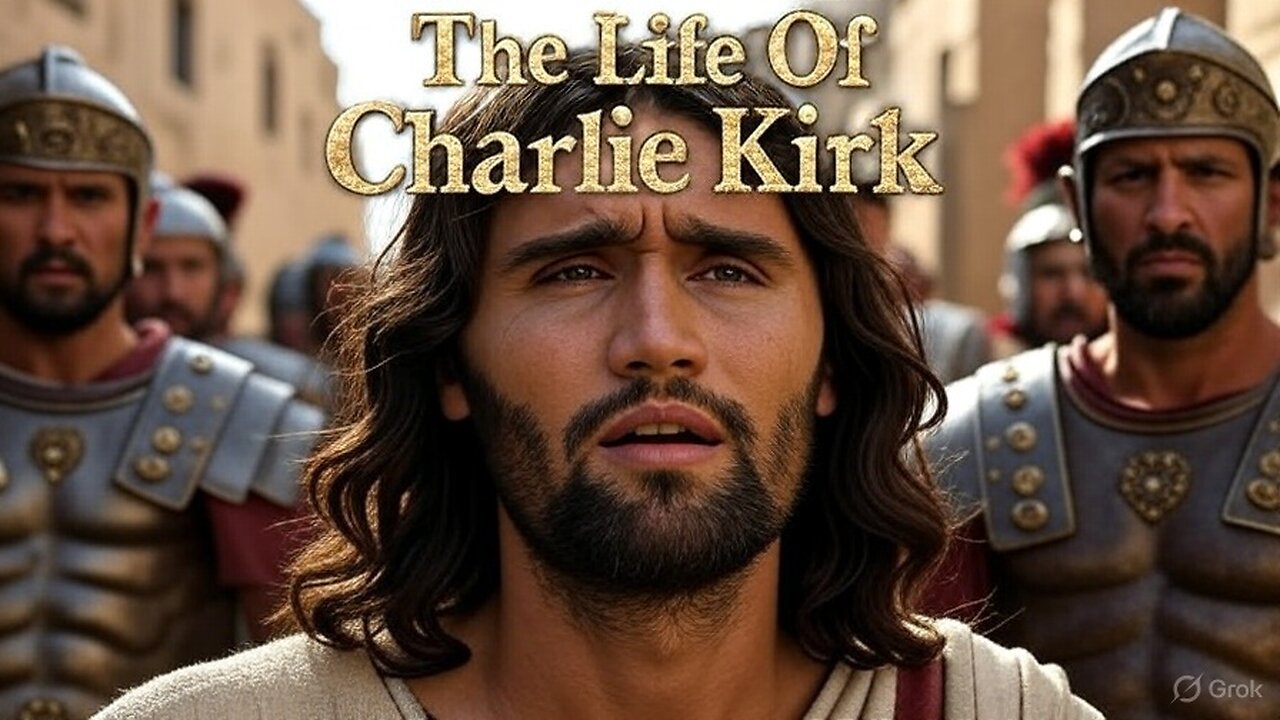
Charlie Kirk: A Journey Through Influence and Legacy
The Life of Charlie Kirk: A Journey from Suburban Idealist to Conservative IconIntroduction: A Life Cut Short, A Legacy EnduringCharles James Kirk, known to millions simply as Charlie, was more than a political activist—he was a phenomenon. Born on October 14, 1993, in the quiet Chicago suburb of Arlington Heights, Illinois, and tragically assassinated on September 10, 2025, at the age of 31, Kirk's life encapsulated the fervor and friction of modern American conservatism.
Shot during a speaking engagement at Utah Valley University in Orem, Utah, while delivering what would be his final address as part of his "American Comeback Tour," Kirk's death sent shockwaves through the political world.
The suspect, 22-year-old Tyler Robinson, was arrested shortly after and charged with aggravated murder, facing the death penalty.
President Donald Trump, a close ally, confirmed the news on Truth Social, hailing Kirk as a "legendary" figure who "understood the heart of the youth in the United States of America better than anyone."
Trump later announced that Kirk would receive the Presidential Medal of Freedom posthumously, a testament to his outsized influence.
Kirk's story is one of precocious ambition, unyielding conviction, and relentless controversy. At just 18, he co-founded Turning Point USA (TPUSA), a nonprofit that would grow into a conservative juggernaut with over 3,500 campus chapters, 250,000 student members, and a multimillion-dollar budget.
Through fiery campus debates, viral social media clips, bestselling books, and a syndicated radio show, Kirk mobilized a generation of young conservatives, reshaping the Republican Party's youth outreach and becoming a key architect of the MAGA movement.
Yet, his career was equally defined by polarizing rhetoric—accusations of racism, misogyny, and conspiracy-mongering that drew ire from critics and adulation from supporters.
As Vice President JD Vance eulogized, "Charlie didn't just help us win in 2024; he helped us staff the entire government."
This biography traces Kirk's improbable rise, his triumphs and tribulations, and the indelible mark he left on American politics—a life that, though brief, burned brightly and divided deeply.Early Life: Roots in the Heartland HeartlandCharlie Kirk's beginnings were quintessentially American: middle-class, suburban, and steeped in the values of hard work and patriotism. Raised in Prospect Heights, a leafy enclave north of Chicago, Kirk was the only child of Robert and Kimberly Kirk.
His father, an architect whose firm contributed to iconic projects like Trump Tower in New York, instilled a sense of precision and ambition.
Kimberly, a mental health counselor, emphasized empathy and resilience, though Kirk would later channel these into a combative worldview.
The family home, a spacious five-bedroom mansion, was a hub of Republican discourse; dinner table conversations often revolved around Ronald Reagan's legacy and the perils of big government.
Kirk's political awakening came early, around age 10, when he devoured Reagan's speeches and Milton Friedman's free-market treatises.
"I became Reagan's 10-year-old boy in 2008," he later quipped, captivated by the Gipper's optimism and anti-communist zeal.
Raised in the Presbyterian tradition, faith played a subtle but formative role—family prayers and church attendance reinforced notions of moral clarity and personal responsibility.
Yet, Kirk's evangelical turn would come later, evolving from secular conservatism to a fervent Christian nationalism.
School at Wheeling High School was a battleground for young Kirk. Described by classmates as "rude" and "arrogant," he chafed against what he saw as liberal indoctrination in the curriculum.
His junior year op-ed in Breitbart News, lambasting textbooks for promoting "socialist propaganda," earned him a Fox News appearance at 17—a thrill that solidified his path.
Kirk volunteered for Sen. Mark Kirk's (R-IL) 2010 Senate campaign, canvassing neighborhoods and honing his persuasive skills.
A humorous footnote: As a sophomore, he led a "cookie crusade" against inflated school vending machine prices, petitioning administrators and rallying peers—a microcosm of his future activist style.
By senior year, Kirk tuned into Rush Limbaugh religiously, absorbing the talk radio icon's bombast. "This guy is unbelievable!" he exclaimed in a high school essay.
Accepted to West Point and Harper College, Kirk briefly attended the latter in 2011 but dropped out after one semester. "College was indoctrination central," he later said, opting instead for full-time activism.
This decision, bold for an 18-year-old, marked the pivot from student to agitator.The Spark: Founding Turning Point USAThe genesis of Kirk's empire came in May 2012, during a Youth Government Day speech at Benedictine University. His impassioned defense of free markets and limited government caught the ear of Bill Montgomery, a 71-year-old Tea Party veteran and retired marketing executive.
Montgomery, impressed by the teen's poise, urged him to skip college and launch a conservative youth group. With $5,000 seed money from Montgomery, Turning Point USA was born in a suburban Chicago basement.
TPUSA's mission was simple yet audacious: counter liberal dominance on campuses by empowering students to promote fiscal responsibility, free markets, and limited government.
Kirk's "Prove Me Wrong" tables—pop-up debate spots where he'd challenge passersby—went viral, amassing clips of heated exchanges that showcased his quick wit and unapologetic style.
Early growth was meteoric: From one chapter in 2012 to dozens by 2014, fueled by donations from conservative donors wary of Obama's agenda.
Kirk's charisma was key. "No money, no connections, no idea what I was doing," he admitted in a 2020 interview, yet his ability to "lean into cultural tensions" resonated amid rising campus progressivism.
By 2015, TPUSA launched the controversial "Professor Watchlist," crowdsourcing reports of "leftist indoctrination" in classrooms—a tool that drew 500,000 views in weeks but accusations of McCarthyism.
This blend of outrage and organization propelled Kirk onto the national stage.Rise to Prominence: Media Mogul and Trump AllyKirk's ascent accelerated in 2016. At 22, he became one of the youngest speakers at the Republican National Convention, electrifying delegates with calls to "occupy" cultural spheres—a nod to the Seven Mountains Mandate of Christian dominionism.
His early Trump endorsement, defying GOP establishment skepticism, paid dividends. Donald Trump Jr. became a fast friend, and Kirk's network introduced JD Vance to the Trumps, paving Vance's path to the Senate and vice presidency.
Media became Kirk's megaphone. In 2019, The Charlie Kirk Show debuted on Salem Radio, quickly topping Apple Podcasts charts with 500,000–750,000 daily downloads by 2024.
Syndicated three hours daily, it blended monologue rants, guest interviews, and listener calls, amassing 5 million X followers and 7 million on TikTok.
Viral moments—like debating 20 "woke" students in "Surrounded"—cemented his brand as conservatism's provocateur.
Books amplified his voice. Time to Stand Up (2017) urged youth rebellion against "cultural Marxism"; The MAGA Doctrine (2020) outlined Trump's worldview; The College Scam (2022) decried higher education as a "debt trap."
These New York Times bestsellers sold hundreds of thousands, netting Kirk royalties amid his $407,000 annual TPUSA salary.
By 2020, TPUSA evolved into a multifaceted empire. Turning Point Action, a 501(c)(4) arm, mobilized voters; TPUSA Faith (2021) courted evangelicals; BLEXIT (2023 partnership with Candace Owens) targeted Black conservatives.
Annual spectacles like AmericaFest drew 20,000 attendees, featuring pyrotechnics, Trump speeches, and chants of "Christ is King!"
Kirk's "You're Being Brainwashed" tour hit 25 campuses in 2024, boosting Gen Z turnout in swing states—Arizona flipped red by 5 points, thanks in part to TPUSA's efforts.
Controversies: The Firebrand's Double-Edged SwordKirk's success invited scrutiny. Critics labeled him a "grifter" peddling hate, citing inflammatory rhetoric on race, gender, and elections.
In 2017, TPUSA's national director Crystal Clanton resigned after texts surfaced saying, "I hate black people... End of story."
Kirk defended her initially, saying "America needs more Crystals," before severing ties.
The Southern Poverty Law Center tracked TPUSA's alliances with white nationalists, including event invites to figures like Nick Fuentes.
On race, Kirk's barbs stung. He called George Floyd a "scumbag" unworthy of attention (2021),
criticized MLK Jr. as overrated,
and promoted the Great Replacement theory, warning of "prowling Blacks" and immigrant threats.
His "Exposing Critical Racism Tour" (2021) assailed CRT as anti-white propaganda.
Gender and LGBTQ+ issues drew fire too. Kirk decried transgender care as "a throbbing middle finger to God" (2023),
called for "Nuremberg-style trials" for gender clinics (2024),
and urged young women to prioritize "marriage and motherhood" over careers.
He mocked Taylor Swift as a "witch" influencing votes (2024).
Election denialism peaked post-2020. Kirk bused 350 students to D.C. on January 5, 2021, tweeting "500 emails a minute calling for civil war."
He spread COVID misinformation, blaming China and cartels for opioids while downplaying vaccines.
Antisemitism allegations surfaced too, from "Jewish donors" funding "Marxist policies" (2023) to pro-Israel fervor amid Gaza critiques.
Defenders saw these as bold truths; detractors, hate speech.
Bans from campuses (e.g., Chicago 2018 for "safety") only burnished his martyr image.
Personal Life: Faith, Family, and FortuneBehind the firebrand was a devoted family man. Kirk met Erika Frantzve, 2012 Miss Arizona USA and podcaster, in 2018; they wed in 2021.
Their daughter arrived in 2022, son in 2024; Instagram glimpses showed beach days and Bible studies, with Erika as CEO post-death.
"Let God write your love story," she captioned their anniversary.
Kirk's faith deepened in the 2020s, from secular critic to Christian nationalist advocating "Occupy until I come."
TPUSA Faith mobilized pastors; speeches fused politics and prophecy.
Wealth followed: A $4.75 million Arizona mansion, $325,000+ salary, book deals, and speaking fees.
Kirk defended it as "fruits of free markets."
Influence on Conservatism: Mobilizing the Next GenerationKirk's genius lay in spectacle and organization. TPUSA displaced rivals like Young Americans for Freedom, creating a "home" for alienated youth.
Rallies like AmericaFest mimicked concerts, drawing 10,000+ with Trump, Kid Rock, and pyrotechnics.
His 2024 RNC speech warned Gen Z of Democratic "brainwashing."
He pioneered conservative media fusion: Podcasts for depth, TikTok for virality, buses for turnout.
Trump credited him with "an army of young patriots."
Kirk launched careers—Vance, Hegseth—and staffed Trump's administration.
BLEXIT engaged Black conservatives, though critics saw it as tokenism.
His certainty appealed to isolated youth post-COVID, offering "spine" to conservatism.
As NPR noted, he was "the most influential voice in young conservatism."
The Final Days: Assassination and AftermathKirk's end came mid-tour, promoting TPUSA's vision. Video captured the shot; his wife and children witnessed the horror.
Erika vowed, "The movement will not die."
Memorials flooded in—Trump's half-staff flags, Vance's tears.
A Glendale stadium service drew 60,000, with speakers like Melania Trump lamenting "stories instead of memories."
Posthumously, TPUSA surged—chapter requests spiked, Erika at helm.
Debates raged: Martyr or demagogue? His death amplified free speech cries, silencing critics like Jimmy Kimmel temporarily.
Legacy: A Polarizing Force in American PoliticsCharlie Kirk's life, though truncated, redefined conservatism. He democratized activism, turning campuses into battlegrounds and youth into warriors.
Supporters hail his mobilization—Trump's 2024 win owed much to TPUSA's ground game.
Critics decry amplified hate, from replacement theory to transphobia.
Yet, as The New York Times observed, Kirk symbolized "hope for the Christian right," fusing faith, populism, and media savvy.
His ethos—"play offense with urgency"—endures, a blueprint for future firebrands. In death, Kirk became eternal: A cautionary tale of division, a rallying cry for unity among the like-minded.In the end, Kirk's story is America's: Ambitious, contentious, unyielding. From cookie crusader to MAGA maestro, he lived large, loved fiercely, and left a nation arguing. As he might say, "Prove me wrong."
Charlie Kirk: A Journey Through Influence and LegacyIn the annals of American conservatism, few figures burned as brightly and briefly as Charlie Kirk. Born on October 14, 1993, in the affluent suburbs of Chicago, Kirk emerged from a cradle of Republican privilege—his parents, Robert and Kimberly Kirk, were fixtures in local GOP circles, instilling in their son a precocious zeal for free markets, limited government, and unyielding patriotism.
Young Charlie idolized Ronald Reagan, tuning into Rush Limbaugh's radio rants during high school commutes, where the talk-show host's barbs against liberal "indoctrination" struck a chord. By 16, Kirk was penning op-eds for Breitbart News, lambasting his high school economics textbooks for peddling "propaganda" from Keynesian economists over Austrian free-marketeers.
It was a harbinger: At Wheeling High School, Kirk wasn't just a student; he was a budding agitator, rejected from West Point but undeterred, channeling that setback into a lifelong crusade against what he saw as the left's siege on American youth.College beckoned briefly at Harper College in Palatine, Illinois, but Kirk dropped out after a single semester in 2012, convinced that academia's "poisonous" liberalism demanded real-world countermeasures.
At 18, he co-founded Turning Point USA (TPUSA) in a suburban garage with Bill Montgomery, a 71-year-old Tea Party veteran and retired businessman who spotted Kirk's raw charisma amid the Obama-era culture wars.
With "no money, no connections, and no idea what I was doing," Kirk later quipped, TPUSA started as a scrappy nonprofit targeting college campuses—hotbeds of progressive activism—to preach fiscal conservatism, Second Amendment rights, and anti-abortion fervor.
Early days were lean: Kirk crashed on couches, debated hecklers in dorms, and scraped donations from sympathetic billionaires like Foster Friess. But his pugnacious style—confronting safe-space advocates with viral YouTube clips—ignited a spark. By 2016, TPUSA boasted chapters on 1,000 campuses, a $65 million budget, and Kirk as its executive director, earning over $325,000 annually.
Kirk's ascent coincided with Donald Trump's improbable 2016 run, a match made in MAGA heaven. At 22, he became one of the youngest speakers at the Republican National Convention, thundering against "campus socialism" to a rapt Cleveland crowd.
Trump, sensing a kindred provocateur, dubbed Kirk "the future of the conservative movement." Their bond deepened: Kirk moderated White House forums, golfed at Mar-a-Lago, and funneled TPUSA's grassroots army into Trump's orbit. Turning Point Action, TPUSA's political arm launched in 2019, mobilized voters in battlegrounds, flipping Arizona red in 2024 by five points after Trump's 2020 loss there.
Kirk's "You're Being Brainwashed" campus tour that year—25 stops in swing states—generated two billion social media views, debating trans athletes and border security with Gen Z skeptics, many of whom donned MAGA hats on the spot.
Media became Kirk's megaphone. In 2019, he launched The Charlie Kirk Show on Salem Radio, a three-hour daily blitz that ballooned to 500,000–750,000 downloads by 2024, ranking top on Apple Podcasts.
His X following hit 5 million, TikTok 7 million, fueled by meme-ready takedowns of "woke" professors and climate alarmism.
Books followed: Time for a Turning Point (2016), a manifesto against millennial entitlement; The MAGA Doctrine (2024), blueprint for Trump's second term; and Campus Battlefield (2020), decrying Big Tech censorship. Kirk's rhetoric was unfiltered—labeling Islam a "civilizational threat" at ACT for America events, or Muslims intent on "destabilizing" the West.
Critics branded him a hatemonger; fans, a truth-teller. He invested early in 1789 Capital, a MAGA venture fund, alongside Don Jr., betting on "America-first" startups.
Personally, Kirk softened his edges. In 2021, he married Erika Frantzve, a podcaster and fellow conservative, in a low-key ceremony; they welcomed a daughter in 2022 and a son in 2024, shielding their kids from the spotlight but sharing beachside family snaps.
Erika became TPUSA's CEO after his death, vowing to carry the torch.
Kirk's faith deepened post-2020, birthing Turning Point Faith to rally evangelicals, blending Limbaugh's bombast with biblical calls to "fight the good fight."Yet Kirk's journey peaked—and plummeted—tragically. On September 10, 2025, at Utah Valley University's outdoor courtyard in Orem, 3,000 fans packed the American Comeback Tour's kickoff. Seated under a tent emblazoned with tour branding, Kirk fielded questions on free speech and election integrity when a single high-powered rifle shot pierced his neck from a rooftop perch 200 yards away.
Chaos erupted: Attendees fled as Secret Service—assigned post-Trump's attempts—rushed the stage. Kirk, 31, slumped lifeless, his final words a quip about "reaching the lost."
Utah Gov. Spencer Cox decried it a "political assassination," amid a 2025 spasm of violence: Minnesota legislators gunned down in June, Israeli embassy staff slain in May, Gov. Shapiro's home torched in April.
The manhunt gripped the nation. FBI photos of a hooded suspect—later identified as 22-year-old Tyler Robinson, a politically unaffiliated UVU dropout—blanketed airwaves, with a $100,000 reward.
Robinson, from Washington state, confessed via texts to a roommate: "I had the opportunity to take out Charlie Kirk and I’m going to take it," begging silence post-shot.
A family tip led to his arrest three days later, charged with aggravated murder, obstruction, and felony discharge.
Motive? Unclear—prosecutors hinted at ideological fury, but Robinson's manifesto railed against "hate-spreaders."
Kirk's death cleaved America. Trump, from the Oval Office, seethed: "No one understood the heart of the youth better than Charlie," vowing a Presidential Medal of Freedom and blaming "savage left-wing rhetoric."
Vigils swelled in Arizona, Utah, even South Korea, where fans mourned the "MAGA apostle."
But backlash scorched: Ta-Nehisi Coates called Kirk a "hatemonger" whose life was "hate"; Ilhan Omar decried his "bigotry and white supremacy."
X erupted—posts like "We are Charlie Kirk's legacy" trended alongside doxxings of celebratory commenters, sparking firings and suspensions.
Polls showed Republican optimism cratering from 70% to 49%.
Kirk's legacy? Polarizing, profound. He forged a youth vanguard—250,000 TPUSA members, glitzy AmericaFests drawing 20,000 with pyrotechnics and Trump speeches—where MAGA hats were badges of rebellion.
Experts credit him with flipping Gen Z: Trump's 2024 youth turnout surged 15%, per Turning Point Action data.
JD Vance, whom Kirk lobbied as VP pick, called him "irreplaceable."
Critics decry his Islamophobia and election denialism; admirers, his unapologetic evangelism for liberty.
As Trump eulogized at Glendale's State Farm Stadium: "Charlie became immortal on September 10th."
In death, Kirk's journey endures—a cautionary blaze of influence, reminding us that in America's fractured arena, words wound deeper than bullets. His void tests the movement he built: Will Erika's stewardship sustain the fire, or will it flicker? One X user captured it: "Charlie's legacy spreads like wildfire—hate him or hail him, he changed the game."
At 31, Kirk's odyssey ended, but its echoes reverberate, shaping the battles yet to come.
-
 2:07
2:07
Mystery School
1 month agoLast Chance at the Unknown: Mystery School Unveiled
34 -
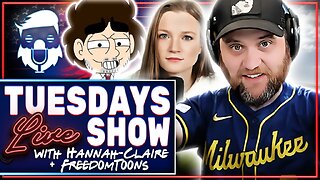 LIVE
LIVE
The Quartering
32 minutes agoPam Bondi GRILLED, CIA Coverup, DEI Backfire & Taylor Swift Cancelled!
15,325 watching -
 UPCOMING
UPCOMING
Awaken With JP
1 hour agoKirk Conspiracies Heat Up, Netflix Castrates Itself, and More!
475 -
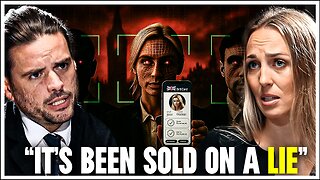 LIVE
LIVE
Winston Marshall
34 minutes agoExposing Britain's Digital ID Plan and What’s Coming Next…
269 watching -
 LIVE
LIVE
Barry Cunningham
3 hours agoPRESIDENT TRUMP MEETS WITH CANADIAN PRIME MINISTER MARK CARNEY
1,429 watching -
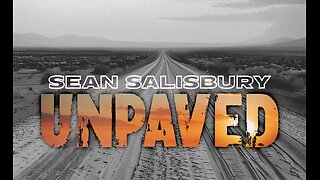 1:08:17
1:08:17
Sean Unpaved
2 hours agoMNF Jaguars Shock: Is Bill's Cachet Fading? Hot Seat Sizzlers & Sanchez's Stabby Spiral
5.7K1 -
 LIVE
LIVE
Side Scrollers Podcast
3 hours agoDEI’s FINAL BOSS EXPOSED + Book Publisher REVERSES Cancel Attempt + More | Side Scrollers
1,431 watching -
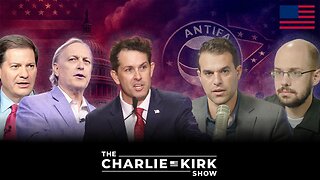 2:00:21
2:00:21
The Charlie Kirk Show
2 hours agoUrban Insurrection? + Biggs for Governor + Red New Jersey? | Halperin, Rep. Biggs, Maloney|10.7.2025
42K28 -
 LIVE
LIVE
Viss
4 hours ago🔴LIVE - Acquire PUBG Tactics Acquire Chicken Dinners! - PUBG 101
173 watching -
 LIVE
LIVE
Badlands Media
10 hours agoGeopolitics with Ghost Ep. 45 - October 7, 2025
892 watching
